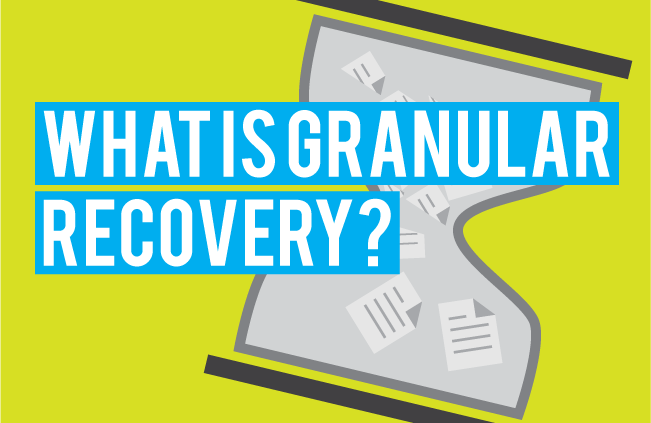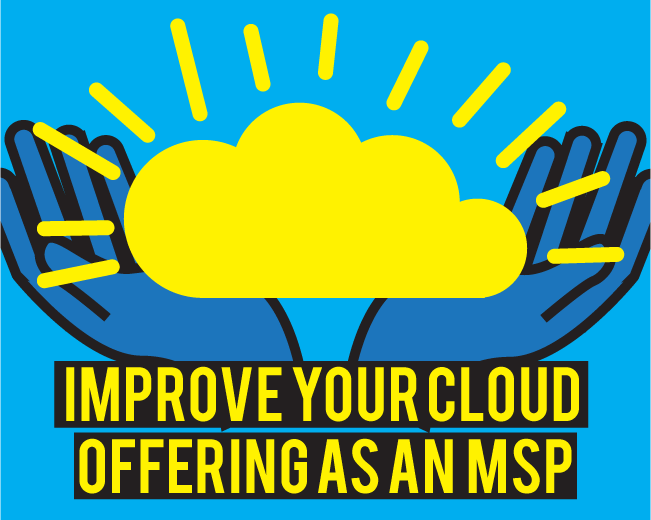The Role of Granular Recovery Technology in a Data-Driven World
According to the North Eastern University study, about 2.5 Exabytes* of data is produced every single day across the globe. That is a huge number, and is equivalent to 250,000 libraries of Congress, or 90 years of HD video. An IDC study** also predicts that universal data “will be doubling in size every two years, and by 2020 the digital universe will reach 44 zettabytes, or 44 trillion gigabytes”. Thus, to say that data is important today is a massive understatement.
Since businesses have become more and more data-driven, and lots of data is being generated on a daily basis, cloud backup and recovery services’ bandwidth have steadily increased. If you are a cloud service provider and want to stand out from other MSPs, then you must stay up-to-date with the emerging data backup and management technologies, one of which is Granular Recovery Technology (GRT).
Let’s say one of your clients lost the contact information of all their customers due to an employee’s mistake or a corrupt database. The files have been simply deleted from the database. How do you imagine they would feel if you tell them that they can recover the same files in a matter of a few minutes? But, how is this possible? Traditional recovery methods have shown that recovering databases is a no mean feat, and can take forever to complete. Well, this is where GRT comes in.
What is GRT?
GRT allows you to restore individual portions of a backed up file, rather than recovering the full database. GRT can help you isolate a particular file from hundreds of thousands of files. So, if a customer has deleted their entire email inbox, but only need the sales-related emails back, then you don’t have to restore the entire inbox. You can just enter the relevant keywords in the GRT program, apply a few filters, and voila! You’ll have the required emails in no time!
Why Should MSPs Care?
When IT Managers have to decide whether they want to partner with an MSP or not, they consider a variety of factors. For an MSP, the better its services are, the better its odds of getting the partnership. For instance, if you can incorporate GRT in your portfolio and explain the same to the managers, you could arouse their interest. GRT is powerful as it is, and if you could show your potential and existing clients with a few examples how it could save a good deal of time and resources, there is no reason why they wouldn’t want to join hands with you.
While full database restoration is always an option, what if a business is facing serious downtime only because of the significant time it takes for database restoration? With GRT, you can restore only the essential files that are required at the moment so that the business can resume operation right away. Meanwhile, you can work on restoring the rest of the database modules that carry a lower significance.
Conclusion
Even though GRT is essentially optional and not a mandatory service, it will come in handy when an accidental data deletion happens or an employee maliciously deletes databases. Rather than restoring the entire database, a portion of the databases can be recovered with ease. In today’s competitive cloud backup and storage markets, MSPs must plan ahead and ensure that they are able to provide the most up-to-date services to their clients.
Data Deposit Box provides the best cloud backup services, including granular recovery technology.
* https://goo.gl/H9JUQH
** https://goo.gl/GbmFKN









Leave a Reply
Want to join the discussion?Feel free to contribute!